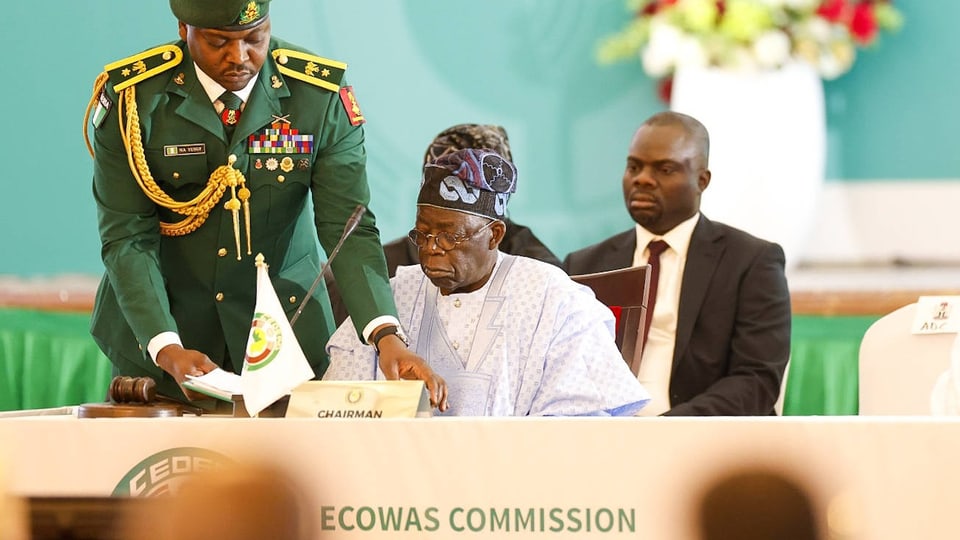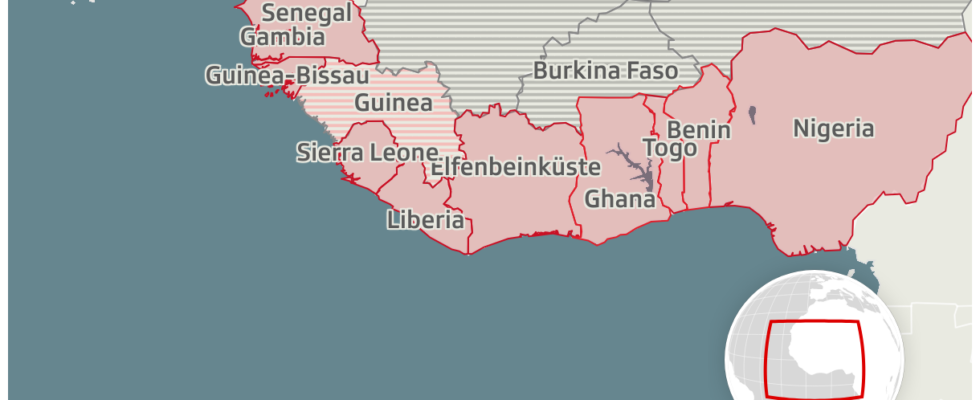Contents
Three states are leaving the West African Economic Community. What does this mean for the region and Europe?
What does Ecowas stand for? The Economic Community of West African States was founded in 1975 and is the oldest regional organization on the continent. Their vision is a peaceful, stable region without borders. At the beginning it was primarily about the economic integration of the contracting states. Over time, Ecowas expanded its cooperation, for example in the areas of health and migration. Since the beginning of the 1990s, Ecowas has also wanted to promote democratic structures in the member states. With the withdrawal of Mali, Niger and Burkina Faso, it still comprises twelve member states.
Why are Niger, Mali and Burkina Faso leaving? There have been military coups in the three countries in recent years. As a result, her membership in Ecowas was suspended. According to Sahel expert Ulf Laessing, the three countries see the West African alliance as being influenced by France: “They accuse some members such as Ivory Coast of implementing sanctions on France’s behalf, as is currently the case against Niger since the coup in 2023.” SRF Africa correspondent Anna Lemmenmeier gives another reason for the withdrawal: “In the eyes of the three countries, Ecowas did not support its members enough in the fight against terrorism.” But the basic conflict remains different. «Ecowas wanted to return the three military governments to democracy. The three putsch leaders were not ready for this.”
What consequences will the countries’ exit have for the region? According to the Africa correspondent, the break with the economic community primarily affects the free movement of people, imports, exports and customs duties. “These are close economic ties that are being severed after almost 50 years.” But there is also a risk of more instability and autocracy. “The likelihood that Burkina Faso, Mali and Niger will return to democracy decreases as they leave.” If regional cooperation decreases, it will primarily benefit Islamists and criminals in the region.

Legend:
The current Ecowas chairman, Nigeria’s President Bola Ahmed Tinubu, at an extraordinary meeting about the coup in Niger (August 10, 2023).
IMAGO / Focal Point Agency
What consequences does the withdrawal have for Europe? Ecowas is an important contact for the EU: “By leaving Ecowas, the last line to these putschist governments for Europe has now been cut,” says Anna Lemmenmeier. “The three countries have clearly turned away. The French were thrown out of the country, as was the UN mission.” Instead, they turned to Russia. Niger is also the main transit country for migration to Europe, says Laessing. After the EU stopped financial aid and development cooperation for Niger, the military government canceled the agreement with the EU that criminalized the transit of migrants through the country. “The floodgates towards Libya have been reopened, so to speak.”
Does the loss of members mean the end of Ecowas? According to Anna Lemmenmeier, it is not the end of Ecowas as an economic union. However, the Ecowas democratization project has failed for the time being. «Until a few years ago, West Africa was still considered the region in Africa where democracy was on the rise. And that had a lot to do with Ecowas.” Later, however, Ecowas often turned a blind eye to undemocratic behavior. “Democracy in West Africa is no longer guaranteed and that also has to do with the failure of Ecowas.”
